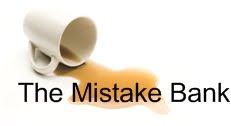Success came quickly for SolTec Electronics. The company, which Dawn Gluskin founded from her living room and financed with her savings and retirement accounts in 2008, sells hard-to-find electronic circuit board components, such as semi-conductors and integrated circuits to companies operating in the electronic manufacturing and aerospace industries.
By 2009, SolTec had annual revenue of $700,000. In 2010, it moved into office space in Rockledge, Fla., hit $2.7 million in revenue, and secured a $150,000 line of credit. SolTec, according to Ms. Gluskin, helps clients when traditional distributor relationships break down. Given the rapid pace of technological advance, critical components in a supply chain can suddenly become obsolete. Many manufacturers also have trouble keeping up with demand, which can result in long lead times as they wait for parts. In addition, counterfeit parts have flooded the global market, which is why SolTec tests all components in its lab before sending them to customers.
Last year Ms. Gluskin, a first-time entrepreneur, devoted much of her attention to sales, marketing, and business development — her areas of expertise — while simultaneously running her 11-employee company. Her efforts were rewarded with explosive growth, but she learned she couldn’t do it all. “I was so wrapped up in other activities,” she said, “that I lost sight of our financials.”
In the fourth quarter of 2010, SolTec recorded its first quarterly loss. Ms. Gluskin was unaware of the problem until the first quarter of 2011, when the $40,000 loss was revealed at an end-of-quarter management meeting. The loss, Ms Gluskin said, resulted from a “perfect storm” of low sales and high spending. “In 2010,” she said, “we tripled our staff size, moved from the home office, added a lab, and were spending, spending, spending on equipment.”
What happened next? You'll have to read it over at the Times.




